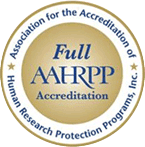Index
Announcement: HSO Renovations
Welcome, New Faculty/Staff Researchers
Request a Presentation Now for Your Research-Oriented Class or Group
Course-Related Student Projects
External IRB Review Process
Before You Go: PI Transfer/Departure Checklist
Announcement: HSO Renovations
The Human Subjects Office, located in 105 Hardin Library, will undergo renovations from May 20th-June 17th. During that time, the office location will be closed and staff will be relocated. HSO Staff will continue to be available by phone and email during normal work hours. Office Hours will also take place in 101 HLHS as normal.
Welcome, New Faculty/Staff Researchers
By Kelly O’Berry
Welcome to the University of Iowa! Every year, the UI hires 250-300 new faculty and approximately 28% of them will be involved in research of any kind (not all human subjects research). The Office of the Vice President for Research offers many resources and collaborative opportunities to help new faculty researchers, research scientists and post-doctoral fellows begin their research here at the University of Iowa. These resources include:

- The recently updated Researcher Handbook - an electronic guide for all researchers (new and existing). It provides an overview for getting started, learning about applicable regulations, applying for funding, managing awards, responsible conduct of research, hiring and supervising staff and closing down when a researcher leaves the UI.
- The New UI Faculty/Staff Researcher Survey - a web-based survey to begin the onboarding process with Research Administration and several other units on campus. Based on the responses, representatives from these units will contact the researcher to provide guidance and support for transferring or beginning to conduct research at the UI. There is additional information about the New UI Faculty/Staff Researcher Survey on the Human Subjects Office web site.
- One-on-one or small group IRB orientations to help new faculty and staff researchers find the resources and support they need to get started with research involving human subjects. This session provides an orientation to the entire Human Research Protection Program (HRPP), an orientation to the IRB review process and requirements for submission, and other committees or entities that review and approve research applications. We share information about several important features of the eResearch application system, HawkIRB, including the delegate permission system and Principal Investigator oversight responsibilities.
The new faculty/staff orientation is a supplement to existing educational opportunities, such as HawkIRB Training Sessions or the Institute for Clinical and Translational Science (ICTS) Academy for Research Professionals. New faculty and staff researchers are strongly encouraged to take advantage of the educational resources offered by the Human Subjects Office and other offices in the Human Research Protection Program and across campus.
New researchers may contact Kelly O’Berry, IRB Education & Outreach Manager at Kelly-oberry@uiowa.edu or 319-335-8477) to schedule an IRB orientation session.
Request a Presentation Now for Your Research-Oriented Class or Group
As the Spring 2019 semester continues into Summer, we want to promote a resource that may be especially useful to instructors of research methods courses, other research-related courses, journal clubs and orientation sessions or seminars for new faculty, graduate and professional students. The IRB Education and Outreach program is available upon request to give classroom and group presentations about the ethical conduct of research, the UI IRB review process and other human subjects research-related topics. We can tailor the length and content of the presentation to suit your needs, and we will present outside normal business hours, including evening and online classes.
IRB Overview Presentation
We offer a general IRB overview presentation that provides a broad overview of topics that are relevant for students and others who plan to conduct research themselves, whether as a course requirement or as an honors, Master’s or doctoral dissertation. This presentation can cover some or all of the following:

- The definition of human subjects research
- How to ask if you need IRB approval
- Ethical conduct of research (the Belmont Report)
- The UI IRB review process
- Informed consent
- Research off campus or outside the United States
- Course-related student projects
- IRB Resources that are available for UI/VA researchers
This presentation provides a good orientation to the UI IRB and the IRB approval requirements for faculty, staff and student researchers.
Ethical Conduct of Research
We also offer a full presentation about the ethical conduct of research. It includes an in-depth discussion of the ethical principles of human subjects research that are outlined in the Belmont Report and examples of unethical research conducted both historically and recently. This presentation is designed to help students apply basic ethical standards to real-world examples of human subjects research. It would be an excellent supplemental lecture for any research methods course.
Revised Common Rule
The Common Rule is the common name for Subpart A of the federal regulations for the protection of human subjects (45 CFR 46). On January 21, 2019, new regulations and institutional policies and procedures regarding human subjects research took effect. The changes were designed to improve research participant protections and modernize the regulations to address new ethical questions in the 21st century. All research approved after January 21 must be compliant with the new regulations and currently approved projects will remain under the previous version of the Common Rule. We would be glad to speak to your class or group about the changes to the regulations and how it may affect their research.
These presentations typically fill a 50-minute class period, but we can tailor the length and topic to suit the needs of the class or group. Contact us today at irb-outreach@uiowa.edu to schedule a presentation for your class or group.
Course-Related Student Projects
By Kelly O’Berry
Research methods and research ethics courses that teach students how to conduct research in a practical setting often include individual or small-group research projects. IRB approval may not be required when the intent of the course-related student project is to learn about how to conduct research, rather than to draw conclusions or make generalizations based on the data collected. In fact, it is unlikely a student could design, obtain IRB approval and conduct a human subjects research project during a one-semester course. [Read more]
Policy and Checklist


The University of Iowa IRB has a Course-Related Student Projects Policy (Investigator’s Guide, Section I, Part 12.D) and a related checklist to help instructors know when IRB approval might be required for projects that are conducted as a course requirement and when they can be conducted without IRB review and approval. It all depends on the intent or purpose of the project, the design and procedures, the subject population and how data from the project will be used.
According to the UI Operations Manual and IRB policies, all human subjects research conducted by University of Iowa faculty, staff or students must have approval from the Institutional Review Board (IRB) prior to initiation. This is required if the project is intended to “develop or contribute to generalizable knowledge,” such as with a thesis or dissertation project. However, research methods course projects are generally more limited in scope, and are intended to help students learn how to conduct research. These projects satisfy curriculum requirements and are not intended to further scientific knowledge in a particular field or discipline. Honor’s, Master’s or Doctoral Thesis projects always require IRB review and approval.
IRB Approval May Not Be Required
Course-related research activities would not require IRB review if:
- The purpose of the assignment is to teach research methodology.
- The results of the assignment will not “contribute to generalizable knowledge” because they are either being to satisfy a course requirement, or because of limits on who will have access to the results of the project.
- The procedures will be limited to surveys, questionnaires, interview procedures, observation of public behavior, or standard educational exercises.
- The participants will not include prisoners, children, or data about them.
- Data will be recorded without any identifying information (such as code numbers, birth dates, etc.). Or the data are not sensitive in nature to pose a risk of harm to the participants’ reputation, employment, financial standing or put them at risk for criminal or civil liability.
- There is no monetary compensation or direct financial support for the project from an external company, organization or agency.
- The project will not be conducted at the Veteran’s Administration Health Care System (VAHCS) or using any VA resources.
- The project is not conducted or supported by a federal department or agency that follows the federal regulations for the protection of human subjects (the ‘Common Rule’).
The Course-Related Student Projects Checklist is a fillable pdf that students complete and instructors use to determine whether a project qualifies as a course-related student project. The form has pop-up messages if any aspect of the project design indicate that IRB approval might be required. When that is the case, the student is directed to submit a Human Subjects Research Determination form in the HawkIRB system to ask whether IRB approval is necessary.
Information for Participants
Even when course-related student projects can be conducted without IRB approval, the student must share the following information with potential subjects:
- Student name and the name of the course
- Course instructor name and contact information
- Who will have access to individual and summarized results (e.g. instructor, group/team members, the whole class, an outside company/agency/organization)
- Participation is voluntary, they may stop participating at any time.
Additional Information and Guidance
The IRB Education & Outreach Program provides guidance to instructors and students in courses with a research project assignment. We can provide information about the policy and the checklist and/or give an IRB overview presentation to the class.
External IRB Review Process
By Kelly O’Berry and Michele Countryman
In recent years, new federal regulations and policies mandated the use of a single IRB for multisite research. The UI IRB may serve as the IRB of Record for other sites or enter into reliance agreements for another IRB to oversee UI researchers’ involvement in a multisite study. The Human Subjects Office has several staff members dedicated to assisting UI researchers with these processes.
Grant Preparation


Researchers should notify the IRB as soon as possible during the grant application process when a single IRB (sIRB) is required by a funding agency or other entity, especially if you want the University of Iowa to serve as the IRB of record. Contact us at uirb-external@uiowa.edu. The Human Subjects Office (HSO) needs a minimum of 14 day notice to review an IRB reliance request.
Complete a Pre Grant IRB Submission Request survey to provide the IRB with basic information about the project. The Human Research Protection Program uses this information to determine the best course of action for assigning IRB oversight responsibilities.
Options for External or Single IRB Model
There are several options for UI researchers:
- Serve as the lead site, with the UI as the IRB of record – This means the UI IRB oversees research conducted at other institutions.
- Serve as a relying site, with an outside IRB as the IRB of record – This means the UI IRB relies on another IRB to oversee the research activities of UI researchers.
In both cases, the UI IRB needs to know the platform for documenting an agreement of the reliance relationship terms. This agreement outlines the regulatory oversight of the research and the responsibilities for the IRB and the relying sites. SMARTIRB is the preferred IRB Reliance platform.
The project must have a communication plan, if the UI IRB is the lead IRB of record. The UI IRB has a template communication plan to assist researchers with documentation of their plan for communicating between sites engaged in the research.
In the event a research site does not have a designated IRB of Record and the UI will negotiate a IRB reliance terms directly with the organization. In these instances, the researcher must also attach a letter of support outlining the site’s roles and responsibilities.
HawkIRB Application
The HawkIRB application is a little different when a study uses a single IRB, either the UI IRB or an outside IRB. When the UI IRB relies on another IRB, the HawkIRB application primarily collects information about compliance with institutional policies, such as disclosure of financial conflicts of interest, research subject compensation, HIPAA privacy laws and FERPA laws related to the use of educational records, and aspects of the study that are overseen by other committees, such as Pharmacy and Therapeutics (P&T), Medical Radiation Protection Committee (MRPC) and others.
Resources
In October, 2018, the Human Subjects Office hired Nicholas Montgomery as the new External IRB Coordinator. In March 2019, Mark Brunt joined the team as the Commercial IRB Coordinator to assist with processing external IRB applications. All communications should be directed to the central email box, uirb-external@uiowa.edu or uiwirb@uiowa.edu for Western IRB (WIRB) questions.
This spring the Human Subjects Office began holding HawkIRB training sessions for external IRB applications. We encourage you to attend to learn about preparing external IRB application and about the IRB review process.
The following resources are available on the Human Subjects Office website:
- Guidance about the Single IRB of Record Submission Process
- An overview of the IRB fees associated with the use of a sIRB process or a commercial IRB.
- Guidance for working with specific external IRBs (Great Plains Collaborative, SMART IRB, StrokeNet, NCI CIRB, Quorum, Western IRB, Advarra, etc.)
- UI Standard Operating Procedures for External/Central IRB Reliance Process
Please remember to contact the Human Subjects Office early and often for any studies using a single or external IRB. We will work closely with you, whether the UI is the lead IRB or if we need to establish a reliance agreement with another IRB. The Human Subjects Office can best help you navigate the external IRB process if we know about the project prior to grant submission.
Before You Go: PI Transfer/Departure Checklist
By Kelly O’Berry
In 2018, the Human Subjects Office (HSO) collaborated with the Division of Sponsored Programs (DSP) and the Grant Accounting Office (GAO) to establish processes to collect information and assist Principal Investigators (PIs) who are leaving the UI or transferring to a different status (such as an Adjunct or Emeritus appointment). This article is for faculty members whose status is changing AND for study coordinators and departmental administrators who work with faculty who are leaving the UI or changing their status with the UI.
There are separate forms and procedures depending on whether the faculty member has federal or non-federal funding or if they have internal/departmental funding or no funding for their research.

Funded Research
The PI Transfer/Departure Form is used when there is a change in status for a PI who has federal or nonfederal funding for research. The change in status includes transferring to a new institution, terminating their position at the UI or changing to adjunct professor or emeritus.
The submitter must complete a separate departure form for each project. Through the UI workflow system, this form is used to notify the following units about the change in status:
- Division of Sponsored Programs (DSP)
- Grant Accounting Office (GAO)
- Human Subjects Office (HSO)
- Institutional Animal Care and Use Committee (IACUC)
- Environmental Health and Safety (EHS)
Information on the PI Transfer/Departure process is located on the DSP website and completion is mandatory for funded research. The submitter must should be aware of the status of all research under the oversight of the departing PI. Select the appropriate forms based on the status change and whether there is an active award (funding has been awarded) or a proposal for funding (grant submitted or contract negotiations in progress). There is also a place to upload pdf files of the following documents: Grant Transfer, Letter submitted to sponsor, Letter regarding retired, adjunct or visiting professors serving as PI, Title Transfer or any other relevant documentation.
It is recommended that the department initiate the PI Transfer/Departure process at least 90 days prior to the PI’s change in position, if possible.
Non-Funded Research
There is a separate Human Research Protection Program (HRPP) Departure Checklist for PIs who have departmental, internal or no funding for their research. This departure form is not required, but PIs and Departments are strongly encouraged to use the checklist to make sure they complete all of the necessary steps prior to their departure/transfer.
The HRPP Checklist and the PI Departure Survey can be completed by the PI or by someone knowledgeable about the PI’s research projects. The PI can describe multiple research records (HawkIRB applications, DSP records or ClinicalTrials.gov records) in a single checklist. The checklist collects the following information or prompts the following actions:
- Identify the studies affected by the departure/transfer (IRB#s, Protocol #s, NCT #s, Public and in-development records)
- Identify the affected materials (roles that need to be filled, funding contracts, specimen/data transfer, Investigational New Drug (IND) or Investigational Device Exemption (IDE) with the Food and Drug Administration (FDA)
- A reminder to complete the PI Transfer/Departure Form if the PI has funding for research
- Notify any other committees that reviewed and approved the research
- Use the Data Use Agreement flowchart to see if a data use agreement is necessary
- Provide new contact information to the PIs Departmental Executive Officer (DEO), to the IRB and to other committees and entities that reviewed the research
- Submit the appropriate updates in HawkIRB – either a Project Closure form or a Modification form
- Submit other updates as necessary – to the FDA, ClinicalTrials.gov, NIH or other sponsors, etc.
Ideally the PI should complete this departure form at least 30 days prior to the expected departure/transfer OR within 14 days after an unexpected departure. But this form is just for the PIs use, it does not have to be submitted to the IRB or any other committee or office.
eResearch (HawkIRB) Application
The HawkIRB system is only available for people who have a valid HawkID. When a PI leaves the UI, they no longer have access to HawkIRB and their delegates can no longer access HawkIRB on their behalf. It is important that the PI complete all actions in HawkIRB prior to their departure/transfer.
Whether the faculty member had funding or not, prior to departure they should submit a Project Closure form or a Modification form to change the PI in HawkIRB. Be sure to complete all pending HawkIRB forms prior to the departure/transfer.
Project Closure Form - If, upon the departure/transfer, the research will no longer be conducted at the UI, the PI would submit a Project Closure form to indicate the current status of the project and report the total number of subjects enrolled and/or records reviewed.
Modification Form – If the research will continue at the UI under the leadership of a new PI, the departing/transferring PI would submit a Modification form.
There are two other circumstances where a HawkIRB submission may be required.
Research Team Member Change - The departure/transfer of a PI needs to be documented in HawkIRB applications for which s/he is named on the research team. The PI of those projects should submit a HawkIRB Modification form to remove the departing/transferring research team member.
Faculty Advisor Change - If the departing/transferring PI serves as the Faculty Advisor for a student/trainee researcher, not only will they need to be removed from the team but the student/trainee will need to identify a new Faculty Advisor to serve in that capacity as long as the project remains open in HawkIRB. The new Faculty Advisor should be added to the research team but they do not need to sign a new Assurance Document.
More Information
For more information, see the announcement about these forms and processes on the HSO website and the primary source of information on the DSP website. Check out the forms, checklists and guidance to help PIs prepare for departure/transfer.


